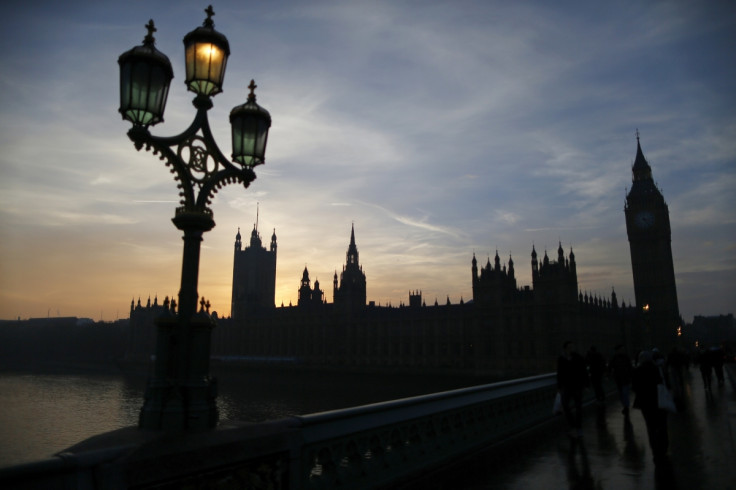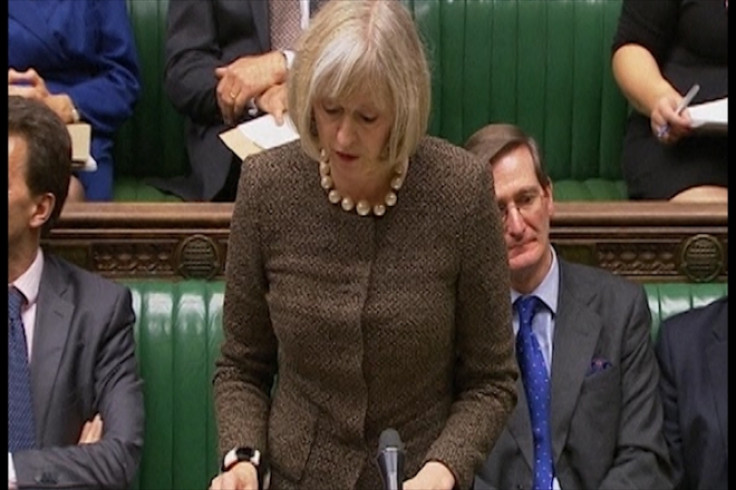Are the Dirty Secrets of Paedophile MPs Hidden in the Chief Whip's 'Little Black Book'?

Anyone seeking support for the claims there was a conspiracy to cover-up a Westminster paedophile ring in the 1980s will have had their worst fears confirmed by some of the more shocking allegations now being aired.
Thanks to the current high-profile campaign, and home secretary Theresa May's creation of two inquiries into historic abuse, many of the claims that have been rumbling around for decades are being viewed with fresh eyes.
That has itself has raised questions about the fact there appears to have been plenty of, at least circumstantial, evidence of paedophile activity on a wider scale than ever acknowledged. It is the same question that surrounded Jimmy Savile; why so many people suspected so much, but no successful action ever followed.
It might be debt, it might be scandal involving small boys, any kind of scandal. And if we could help, we would, because we would store up brownie points. If we could get a chap out of trouble, then he'd do as we ask for evermore.
As for the alleged political conspiracy, former child protection officer Peter McKelvie has claimed there was a "powerful elite" of abusers, which included at least 20 prominent figures, including politicians, who operated for decades and which was known about by many others.
It was his investigations into the notorious Paedophile Information Exchange (PIE), dating back more than 20 years, which eventually led to the 2012 police inquiry after years in which, it is believed, nobody wanted to know.
But the allegations of a Westminster conspiracy have been given the greatest apparent support by the suggestion that senior parliamentary party managers, the whips, kept secret records of individual MPs' activities for their own disciplinary purposes.
A 1995 BBC interview with Tim Fortescue, a Conservative whip in Ted Heath's Tory government between 1970-73, suggested MPs might seek their help with personal problems.
"It might be debt, it might be scandal involving small boys, any kind of scandal. And if we could help, we would, because we would store up brownie points. If we could get a chap out of trouble, then he'd do as we ask for evermore."
It seemed an extraordinary, shocking statement, but 20 years ago the whips' "little black book" was common knowledge in Westminster. That did not mean it actually existed, of course, and politicians always denied its existence, claiming it was a media myth.

However there were also any number of stories about whips routinely using any tactics, no matter how extreme, to keep wayward MPs in line.
They included offers of political advancement, threats to destroy careers, reveal secret affairs or homosexuality and, apparently, the offer to deal with claims of child sex abuse with "small boys".
The little black book, or some equivalent, which detailed all the snippets of gossip, calls for help and past misdemeanours that could conceivably be used in the task of keeping party discipline, would clearly have been a hugely powerful weapon. But only if the details were kept secret.
So the question raised by the interview with Fortescue, who died in 2008, goes to the heart of the conspiracy claims.
If whips knew, or suspected, an MP was involved in child sex abuse, what did they do about it?
Did they ever inform the police or, in order to earn those "brownie points", did they use their establishment network to keep the claims secret and ensure no action was ever taken?
It is the question those determined to pursue the allegations to the bitter end want answered. But those answers may only come in the over-arching inquiry which could take years to complete.
They could have a devastating effect on the standing of politics and politicians still struggling to recover from the expenses scandal five years ago. Once again, the behaviour of a small group could lead to a fatal undermining of what's left of the previous, limited respect for the political class, and the consequences of that could be dire.
But there is also the real danger of an outbreak of hysteria and an atmosphere where any allegation, no matter how outrageous or unfounded, may gain credibility.
Theresa May's inquiries will seek to avoid that, but the allegations look set to run for months to come and in the absence of their findings, that can only add to the corrosive suggestion that, once again, the political elite have been somehow involved in an historic and scandalous cover-up.
© Copyright IBTimes 2024. All rights reserved.






